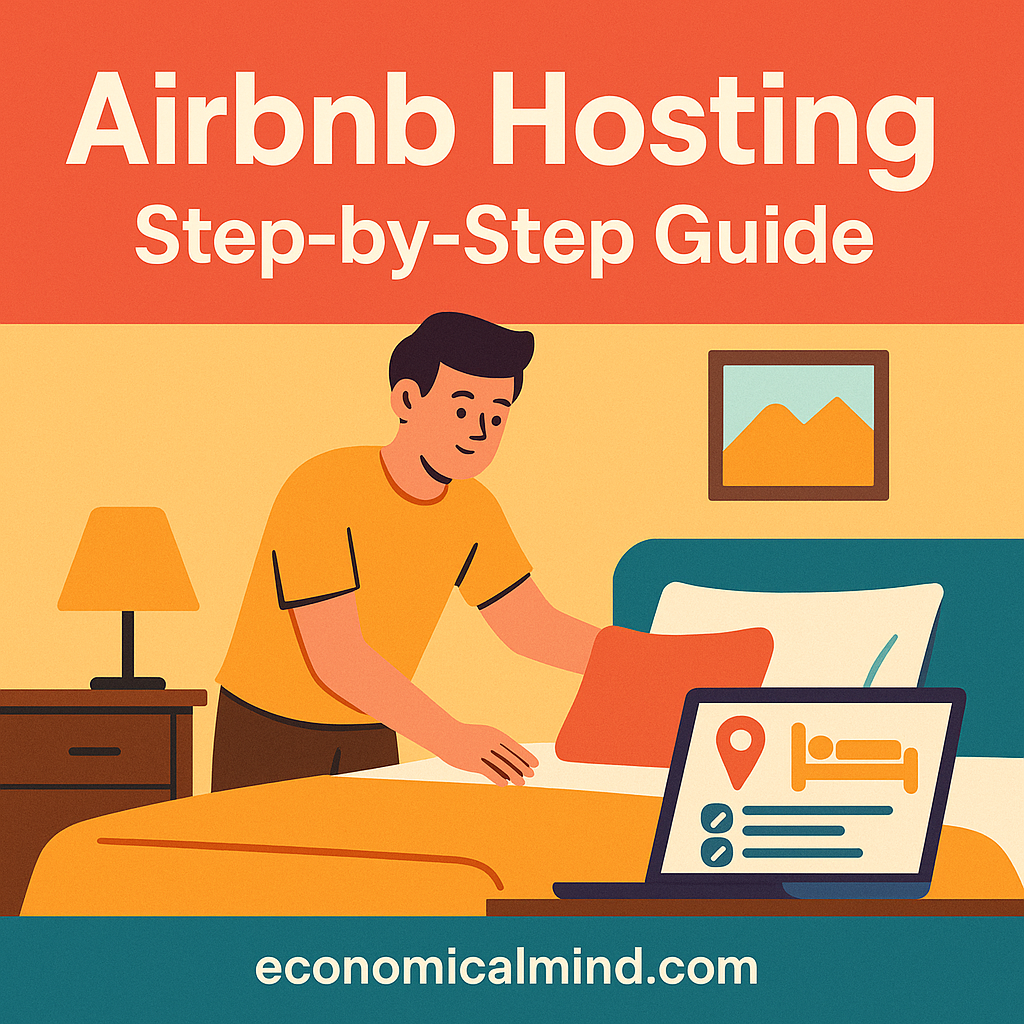
Why Airbnb Hosting Is a Great Side Hustle
If you have a spare room, guesthouse, or second property, Airbnb hosting can be one of the most rewarding ways to earn passive income.
It allows you to turn unused space into steady cash flow while meeting travelers from around the world.
With the right setup and strategy, you can create an experience that keeps guests coming — and your profits growing.
Step 1: Research Local Laws and Regulations
Before listing your space, check your city or county’s short-term rental rules.
Some areas require:
- A business license or short-term rental permit
- Occupancy tax registration
- Safety inspections or insurance
Visit your local government’s website or Airbnb’s “Responsible Hosting” page for specific requirements.
Following local rules protects you from fines and ensures your listing stays active long term.
Step 2: Prepare and Furnish Your Space
Guests expect clean, comfortable, and functional accommodations — not just a place to sleep.
Start with the basics:
- Clean and declutter every room
- Provide fresh linens and towels
- Add thoughtful touches like toiletries, coffee, or local maps
Then, furnish with comfort and durability in mind.
Use neutral décor, quality mattresses, and warm lighting.
A few well-placed plants or wall prints can instantly elevate your space’s appeal.
Step 3: Take High-Quality Photos
Photos make or break your Airbnb listing.
Use natural lighting, shoot from multiple angles, and highlight the space’s best features.
Tips for better photos:
- Shoot during the day with all lights on
- Declutter surfaces and hide wires
- Show details — cozy corners, workspace, or outdoor patio
- If possible, hire a professional photographer (Airbnb often offers free shoots in select areas)
Remember: Guests book what they see — so make your visuals shine.
Step 4: Create an Engaging Listing Description
Your listing should answer key guest questions and spark curiosity.
Include:
- A catchy title (e.g., “Modern Downtown Loft with Balcony & Free Parking”)
- A detailed description of amenities and nearby attractions
- Check-in/out times and house rules
- What makes your space unique (quiet, walkable, scenic, family-friendly, etc.)
Use friendly, welcoming language — imagine writing to your ideal guest.
Step 5: Set Competitive Pricing
Pricing can make or break your occupancy rate.
To find the sweet spot:
- Compare similar listings in your area
- Adjust based on location, size, and amenities
- Use Airbnb’s Smart Pricing tool to stay competitive
Also consider seasonal adjustments — raise prices during high travel periods and lower them slightly during slow months to maintain steady bookings.
Step 6: Deliver an Exceptional Guest Experience
Your goal isn’t just to host guests — it’s to earn 5-star reviews.
To do that:
- Communicate quickly and clearly before and during their stay
- Provide clear check-in instructions
- Keep your space spotless and well-stocked
- Leave a personal touch like a welcome note or local snacks
Happy guests lead to great reviews, and great reviews lead to more bookings — the ultimate cycle of Airbnb success.
Step 7: Automate and Optimize for Passive Income
Once you start getting consistent bookings, it’s time to make hosting as passive as possible.
Automate tasks like:
- Messaging: Use tools like Host Tools or Smartbnb for auto-responses
- Cleaning: Partner with a reliable local cleaning service
- Dynamic pricing: Use apps like PriceLabs or Wheelhouse to adjust prices automatically
Automation saves time and helps you scale — especially if you decide to manage multiple properties later.
Bonus Tip: Screen Guests Carefully
Airbnb’s platform includes identity verification and guest reviews — use them.
Only accept guests with positive feedback and verified profiles to protect your property and ensure a smooth experience.
Trust your gut. If something feels off, decline politely — it’s better to lose one booking than risk property damage or stress.
Final Thoughts
Airbnb hosting isn’t just about renting space — it’s about creating experiences.
With smart preparation, good communication, and a welcoming environment, you can turn your property into a reliable stream of passive income.
Start small, learn from feedback, and continue improving — soon, your Airbnb can become both profitable and enjoyable to manage.
